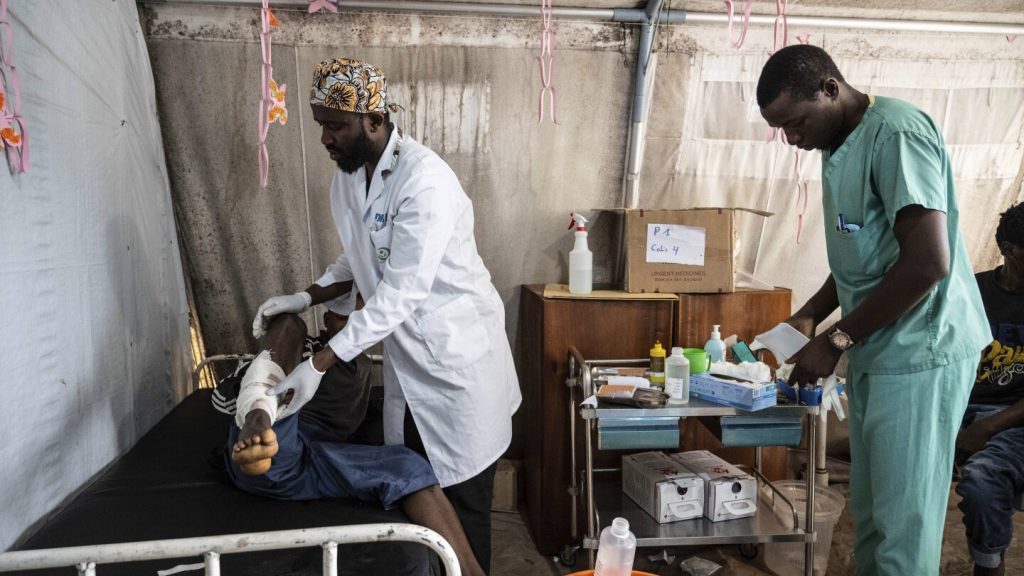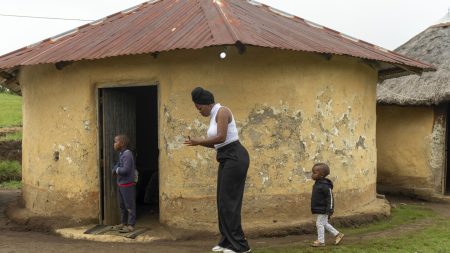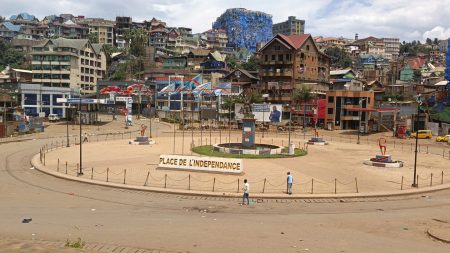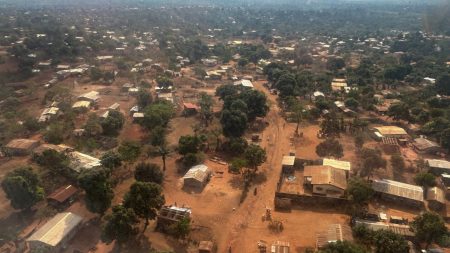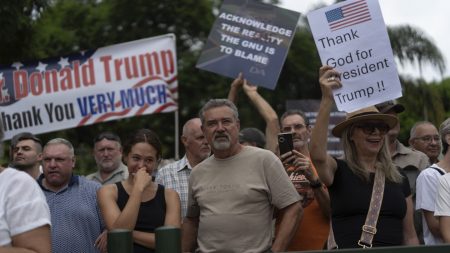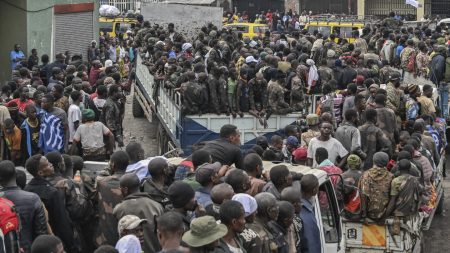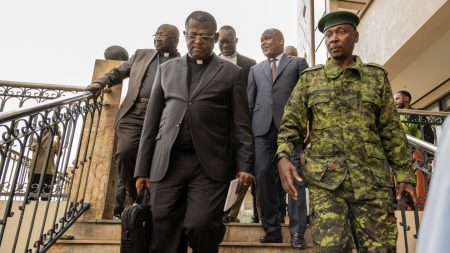The Escalating Conflict in Eastern Congo: A Humanitarian Crisis Unfolds
The Rebel Advance: How M23 Gained Ground in Eastern Congo
Eastern Congo is witnessing a grim escalation of conflict as the M23 rebels, supported by Rwanda, continue to seize territory despite a declared ceasefire. The strategic town of Nyabibwe, situated midway between the major cities of Bukavu and Goma, fell under rebel control. This advance brings the rebels alarmingly close to Bukavu, raising concerns among residents and officials alike. The ceasefire, announced on humanitarian grounds, appears to be a mere gesture, as heavy fighting persists. Civilians caught in the crossfire voice their despair, doubting the sincerity of the ceasefire. The situation remains volatile, with the rebels edging closer to Bukavu, a key urban center in South Kivu province.
Life Under Occupation: The Plight of Civilians in Goma
Goma, a city of two million, remains under M23 occupation, with its airport damaged and under rebel control. This has severely hindered humanitarian aid delivery, escalating the crisis. The United Nations peacekeeping force, MONUSCO, faces restricted movement, further complicating aid efforts. The blockade of exit routes has trapped civilians, many of whom are burying loved ones as the death toll rises. With reports of decomposing bodies and uncertain conditions, the humanitarian needs in Goma are dire, leaving residents in a state of constant fear and uncertainty.
Rwanda’s Role: Uncovering the Truth Behind the Conflict
Rwanda’s involvement in the conflict is a contentious issue, with deny any military presence despite UN reports indicating otherwise. Rwanda’s narrative revolves around protecting ethnic Tutsis, linking it to the 1994 genocide. However, analysts suggest Rwanda’s interest in Congo’s mineral resources, crucial for global technology, may be a significant motivator. This adds a layer of complexity to the conflict, blending historical grievances with economic interests, and fueling one of Africa’s most enduring wars.
Regional Involvement: Uganda’s Presence in Congo
Uganda’s involvement in Congo adds another dimension to the regional dynamics. Deployed since 2021 to combat the Allied Democratic Forces in Ituri province, Uganda’s presence is sanctioned by Congo’s president. Despite recent denials of new deployments, Uganda’s role underscores the multifaceted nature of the conflict, involving various armed groups across the region. This intervention, while aimed at security, raises questions about the broader implications for regional stability and sovereignty.
Humanitarian Crisis: The Toll on Civilians and Aid Efforts
The conflict’s toll on civilians is severe, with millions displaced and a rising death toll. Goma has seen nearly 2,000 bodies collected, with many more remaining unaccounted for. The humanitarian situation is exacerbated by the U.S. halt on aid funding, affecting critical services and organizations. The UN warns of a deepening crisis, with the loss of Bukavu’s Kavumu airport potentially crippling aid delivery. The situation is increasingly dire, with civilians bearing the brunt of the conflict’s escalation.
International Response: Calls for Justice and Accountability
The international community is responding with calls for accountability, as the International Criminal Court seeks evidence of atrocities committed in the region. Congo has issued an arrest warrant for an M23 leader, signaling a move towards legal action. These efforts highlight the need for justice in addressing the root causes of the conflict. However, without a ceasefire honored by all parties, the path to peace remains uncertain, leaving the region on edge as the humanitarian crisis deepens.





